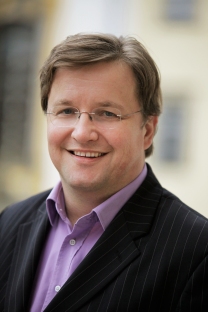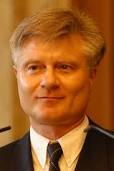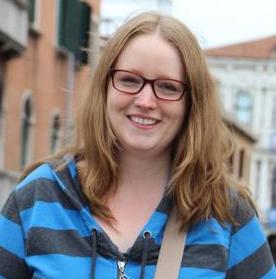Early Bird Deadline approaching: Feb-26!
Call for Participation
REFSQ’16 will take place from March 14 -17, 2016 in Gothenburg, Sweden!
The REFSQ’16 special theme is:
Understanding an ever changing world through the right requirements.
Keynote Speakers
- Magne Jørgenssen, Simula Norway
- Roel Wieringa, University of Twente, the Netherlands
Scientific Program
21 papers will be intensively discussed in the REFSQ typical discussion sessions.
3 workshops featuring the topics of:
- Continuous Requirements Engineering
- Requirements Engineering for Self-Adaptive and cyber Physical Systems
- Requirements Engineering and Testing
Doctoral Symposium
Posters & Demos Session
Industry Track
Keynote: Sarah Gregory, Intel, USA
7 Industrial Talks and a Discussion Panel
Research Methodology Track
This track features lively discussions giving you the opportunity to learn about research methods used in RE research.
Social Event
Join us for join us for an unforgettable social Event on March 16, including a guided tour in Universeum, Gothenburg’s famous science park, and a delicious conference dinner in its aquarium.
The detailed program is available at: https://refsq.org/2016/conference-program/
The online registration service is available at: https://refsq.org/2016/event-information/registration/




 Anna Perini is a senior researcher at the Software Engineering research unit of FBK ICT – Center for Information Technology, Trento (Italy), where she conducts research in requirements engineering. She is project coordinator of the H2020 project SUPERSEDE, and of the joint programme FBK-ICT and CNR-ISTC, on Ontology-Based Information Systems (OBIS).
Anna Perini is a senior researcher at the Software Engineering research unit of FBK ICT – Center for Information Technology, Trento (Italy), where she conducts research in requirements engineering. She is project coordinator of the H2020 project SUPERSEDE, and of the joint programme FBK-ICT and CNR-ISTC, on Ontology-Based Information Systems (OBIS).  Hermann Kaindl is the director of the institute for computer technology and a member of the senate at TU Wien. He joined this institute in early 2003 as a full professor. Prior to moving to academia, he was a senior consultant with the division of program and systems engineering at Siemens AG Austria. There he has gained more than 24 years of industrial experience in software development. His current research interests include software and systems engineering focusing on requirements engineering and architecting, and human-computer interaction as it relates to interaction design and automated generation of user interfaces. He has published 5 books and more than 200 refereed papers in journals, books and conference proceedings. He is a Senior Member of the IEEE, a Distinguished Scientist member of the ACM, Fellow of the IARIA and a member of the AAAI, and is on the executive board of the Austrian Society for Artificial Intelligence.
Hermann Kaindl is the director of the institute for computer technology and a member of the senate at TU Wien. He joined this institute in early 2003 as a full professor. Prior to moving to academia, he was a senior consultant with the division of program and systems engineering at Siemens AG Austria. There he has gained more than 24 years of industrial experience in software development. His current research interests include software and systems engineering focusing on requirements engineering and architecting, and human-computer interaction as it relates to interaction design and automated generation of user interfaces. He has published 5 books and more than 200 refereed papers in journals, books and conference proceedings. He is a Senior Member of the IEEE, a Distinguished Scientist member of the ACM, Fellow of the IARIA and a member of the AAAI, and is on the executive board of the Austrian Society for Artificial Intelligence.  Dr. Jennifer Horkoff is a Postdoctoral Fellow at the CAS Business School, City University, London. She is the holder of a two-year Marie Sklodowska Curie Intra-European Fellowships for career development (IEF), working under the supervision of Prof. Neil Maiden. She is also a holder of a Natural Sciences and Engineering Research Council of Canada Postdoctoral Fellowship. Jennifer received her Ph.D. in Computer Science from the University of Toronto, under the supervision of Prof. Eric Yu. She spent 2.5 years at the University of Trento, Italy, as part of the Lucretius: Foundations for Software Evolution project, working with Prof. John Mylopoulos and colleagues. She has been an author or co-author of more than 20 papers in peer-reviewed journals, conferences, or workshops. Her research interests lie in enhancing the use of conceptual modeling for requirements engineering and business analysis, focusing on creativity, interactive analysis, uncertainty, scalability, and the application of RE-inspired conceptual modeling to business intelligence. Jennifer is on the program committee of several international conferences, including RE, REFSQ and CAiSE, has been on the organizing committee of RE, and has been a (co-)organizer of several workshops, including iStar, RIGiM, and MReBA.
Dr. Jennifer Horkoff is a Postdoctoral Fellow at the CAS Business School, City University, London. She is the holder of a two-year Marie Sklodowska Curie Intra-European Fellowships for career development (IEF), working under the supervision of Prof. Neil Maiden. She is also a holder of a Natural Sciences and Engineering Research Council of Canada Postdoctoral Fellowship. Jennifer received her Ph.D. in Computer Science from the University of Toronto, under the supervision of Prof. Eric Yu. She spent 2.5 years at the University of Trento, Italy, as part of the Lucretius: Foundations for Software Evolution project, working with Prof. John Mylopoulos and colleagues. She has been an author or co-author of more than 20 papers in peer-reviewed journals, conferences, or workshops. Her research interests lie in enhancing the use of conceptual modeling for requirements engineering and business analysis, focusing on creativity, interactive analysis, uncertainty, scalability, and the application of RE-inspired conceptual modeling to business intelligence. Jennifer is on the program committee of several international conferences, including RE, REFSQ and CAiSE, has been on the organizing committee of RE, and has been a (co-)organizer of several workshops, including iStar, RIGiM, and MReBA. 